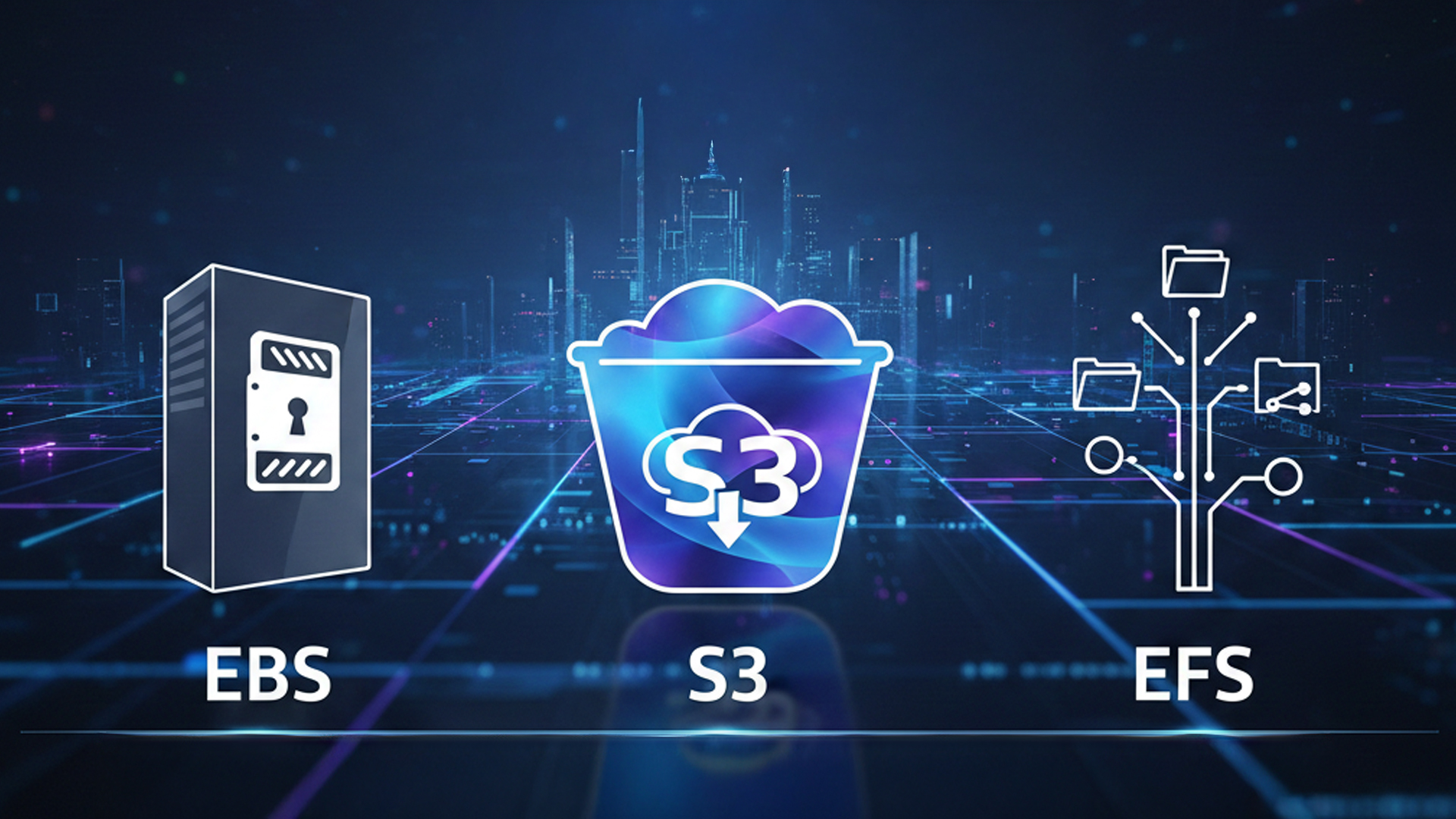Introduction: What are AWS Media Services?
In today’s digital-first world, delivering high-quality video content to viewers anywhere has become a business necessity. AWS Media Services are cloud-based tools that make this possible without the headaches of traditional broadcasting infrastructure. These services handle everything from ingesting live feeds to delivering personalized content to millions of viewers on any device.
What are AWS Media Services, exactly? Think of them as your complete video production studio in the cloud. They transform how broadcasters, content creators, and streaming platforms operate by eliminating hardware constraints and technical barriers.
The various types of AWS Elemental Media Services work together seamlessly to process, package, and deliver media content with broadcast-grade quality while offering the flexibility and scalability that only cloud solutions can provide.

What is the Purpose of AWS Elemental Media Services?
The purpose of AWS Media Services is straightforward: to make video content delivery simpler, faster, and more cost-effective. But what does this mean in practice?
Traditional video workflows involve expensive hardware, complex maintenance, and significant technical expertise. The purpose of AWS Media Services is to eliminate these barriers by:
- Converting fixed infrastructure costs to flexible, pay-as-you-go pricing
- Automating resource scaling to match audience demand
- Eliminating hardware maintenance and upgrade cycles
- Providing broadcast-quality features without broadcast-level complexity
- Enabling content delivery to any device, anywhere
Whether you’re launching a new streaming service, broadcasting live events, or delivering on-demand content, AWS Media Services provide the tools to focus on creating great content rather than managing infrastructure.
AWS Media Services Workflow
The workflow of AWS Media Services follows the natural path of video content, from creation to viewer consumption:
- Content Acquisition: Live feeds or stored content enter the cloud through MediaConnect or direct uploads
- Processing: Content is encoded, transcoded, and enhanced
- Packaging: Video is formatted for different playback devices and platforms
- Storage: Processed content is securely stored for delivery
- Delivery: Content reaches viewers with optional personalization
- Monetization: Targeted advertising is inserted where appropriate
This workflow of AWS Media Services is flexible, allowing you to use only the components you need. Each step leverages specific q, working together to create a seamless pipeline from content creation to viewer engagement.
8 Key AWS Elemental Media Services
Let’s explore the eight essential types of AWS Elemental Media Services that power modern media workflows:
-
AWS Elemental MediaConnect
MediaConnect is the transport service for live video, offering satellite-level reliability with IP network flexibility. It’s perfect for:
- Broadcasting live events from remote locations
- Distributing live feeds to partners
- Creating redundant content streams
The AWS Elemental Media Services ecosystem gains tremendous value from MediaConnect’s ability to reduce transport costs (up to 30% compared to satellite), simplify feed management, and enhance security for valuable content.
-
AWS Elemental MediaConvert
This file-based processing service transforms your content for multi-device delivery with broadcast-grade features including:
- Format conversion for playback compatibility
- Quality optimization for different viewing conditions
- Audio normalization and enhancement
- Captioning and accessibility features
Among the advantages of AWS Elemental Media Services, MediaConvert stands out by eliminating hardware encoding farms, simplifying operations, and offering pay-per-use pricing.
-
AWS Elemental MediaPackage
MediaPackage prepares video for delivery to any device by:
- Creating device-specific formats on-demand
- Adding content protection through DRM
- Enabling time-shifted viewing features
- Ensuring consistent playback quality
The types of AWS Media Services like MediaPackage are crucial for reaching virtually any viewer while maintaining content security and quality.
-
AWS Elemental MediaLive
This real-time encoding service transforms live content for broadcast and streaming simultaneously. MediaLive offers:
- Professional broadcast features like ad markers and captioning
- Reliable 24/7 operation with automatic failover
- Multi-channel audio support
- Adaptive bitrate streaming
Key advantages of AWS Elemental Media Services through MediaLive include broadcast reliability without the broadcast hardware investment.
-
AWS Elemental MediaTailor
MediaTailor personalizes the viewing experience through:
- Server-side ad insertion that defeats ad blockers
- Audience-specific content delivery
- Linear channel creation from VOD assets
- Accurate ad impression reporting
These capabilities directly impact revenue potential while maintaining a seamless viewer experience, showcasing how AWS Media Services deliver business value.
-
AWS Elemental MediaStore
MediaStore is purpose-built for video origin storage, offering:
- Low-latency content delivery
- High throughput for popular content
- Built-in content security
- Automatic scaling under load
Within the AWS Elemental Media Services portfolio, MediaStore provides optimized performance specifically for video workflows.
-
Amazon Interactive Video Service
IVS delivers live video with sub-second latency, perfect for:
- Live streaming with audience interaction
- Gaming broadcasts
- Virtual events with real-time engagement
- Live shopping experiences
The purpose of AWS Media Services like IVS is to offer the simplest path to low-latency live streaming with minimal configuration.
-
Amazon Kinesis Video Streams
This service handles video from connected devices for:
- Security camera feeds
- IoT device integration
- Machine learning video analysis
- Two-way communication via WebRTC
As part of the comprehensive AWS Elemental Media Services suite, Kinesis Video Streams bridges the physical and digital worlds through video.
How to Connect AWS Elemental MediaStore
Integrating MediaStore into your AWS Media Services workflow is straightforward with these steps:
Step-by-Step Integration Guide
Create your MediaStore container:
- AWS mediastore create-container –container-name your-container-name
- Note your endpoint URL – You’ll need this when configuring other services
Set up access policies:
- Create IAM roles with appropriate permissions
- Configure CORS if needed for web playback
Configure for MediaLive integration:
- In MediaLive, create an output group with your MediaStore endpoint
- Set the content path that matches your MediaStore structure
Configure for MediaPackage integration:
- Set MediaStore as your origin source
- Configure path patterns to match your content structure
Configuring Access and Storage Policies
- Use IAM roles rather than access keys when possible
- Implement least-privilege access policies
- Set appropriate object lifecycle rules to manage storage costs
- Configure object metadata for content identification
Common Troubleshooting Tips
- Verify network connectivity between services
- Check IAM permissions if access is denied
- Validate content paths match exactly between services
- Monitor CloudWatch metrics for performance issues
- Inspect object metadata for proper content type settings
Proper MediaStore configuration ensures your AWS Elemental Media Services workflow operates efficiently from ingest to delivery.
How to Use AWS Elemental MediaPackage & Run AWS Elemental Cloud
Steps to Configure MediaPackage
Create a Channel:
- In the AWS console, navigate to MediaPackage
- Click “Create channel” and assign a unique ID
- Configure input settings and authentication
Define Endpoints:
- Select output formats (HLS, DASH, MSS, CMAF)
- Configure segment duration and manifest settings
- Set up content protection if needed
Connect Input Sources:
- Link MediaLive outputs or other sources
- Configure redundant inputs for high availability
How to Integrate MediaPackage
- Connect MediaLive outputs directly to MediaPackage inputs
- Use MediaPackage endpoints as origins for CloudFront distributions
- Implement proper IAM roles for service-to-service communication
- Set up monitoring with CloudWatch for performance metrics
Understanding AWS Elemental Cloud Workflow
The end-to-end AWS Elemental Media Services workflow typically includes:
- Content Acquisition via MediaConnect or direct upload
- Processing through MediaLive (live) or MediaConvert (VOD)
- Packaging with MediaPackage for multi-format output
- Origin Storage in MediaStore for optimized delivery
- Content Delivery through CloudFront to viewers
- Personalization via MediaTailor for targeted experiences
Deployment Strategies
- Multi-Region: Deploy services across regions for global redundancy
- Single-Region with Redundancy: Use multi-AZ capabilities within a region
- Hybrid: Combine on-premises encoding with cloud delivery
- Fully Cloud: Run entire workflows in the AWS cloud
Performance Optimization Techniques
- Implement adaptive bitrate streaming with appropriate rendition ladders
- Optimize segment lengths based on content type (shorter for live, longer for VOD)
- Use proper buffer settings to balance latency and playback stability
- Configure CDN caching appropriately for your content type
- Monitor viewer experience metrics to identify improvement opportunities
These strategies help you leverage the full power of AWS Elemental Media Services for exceptional viewer experiences.
Conclusion
The types of AWS Elemental Media Services we’ve explored represent a complete reimagining of video workflow architecture. By moving media operations to the cloud, these services eliminate traditional barriers to innovation while maintaining professional quality.
From acquisition to delivery, AWS Media Services provide the foundation for flexible, scalable, and cost-effective content distribution. Each service addresses specific workflow needs while integrating seamlessly with others to create a comprehensive media platform.
Empowering Businesses with AWS Elemental Solutions
By leveraging AWS Elemental Media Services, organizations can:
- Launch new offerings rapidly without hardware procurement delays
- Scale resources to match audience demand without over-provisioning
- Implement advanced features like personalization and time-shifting
- Reach viewers on any device, anywhere in the world
- Pay only for the resources actually used
The benefits of AWS Elemental Media Services extend beyond technical capabilities to business advantages: faster time-to-market, reduced capital expenditure, enhanced viewer experiences, and new revenue opportunities.
Unlock the Full Potential of AWS Media Services with Rapyder
At Rapyder Cloud Solutions, we specialize in helping organizations implement and optimize AWS Media Services workflows. As an AWS Premier Tier Consulting Partner, we combine cloud expertise with media industry knowledge to design solutions that meet your specific business needs.
Ready to transform your media operations with AWS Elemental Media Services? FinOps consultation experts today to start your journey toward more efficient, scalable, and innovative content delivery.







